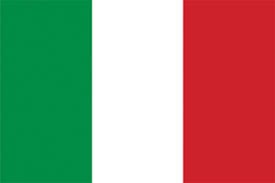Italy’s commitment to support marine litter management in the Adriatic
The continuous growth in the amount of solid waste thrown away, and the very slow rate of degradation of most items, are together leading to a gradual increase in marine litter found at sea, on the sea floor and coastal shores.
Marine litter, including plastic and microplastics, represents one of the main pressures to marine and coastal environment. In the Mediterranean, it is estimated that there are 0.5 billion litter items lying on the seafloor, the majority of which are plastics, with devastating effects on marine biodiversity, but also on our health, and on vital human activities for the economy of this region, such as fisheries and tourism.
In the Adriatic, it is estimated that each habitant produces on average 1.5 kg of waste per day, yet the percentage of waste inadequately managed can go up to 45% depending on the country, according to the Marine Litter Assessment in the Mediterranean.
Italy’s commitment to support marine litter management in the Adriatic
Marine litter management was one of the key components of the Cooperation Agreement. Special attention was given to the Adriatic area, with the goal to provide concrete support through the design and implementation of pilot projects.
A series of Adopt-a-beach pilots were successfully implemented in Albania, Bosnia and Herzegovina and Montenegro to support the implementation of the Regional Plan on Marine Litter Management in the Mediterranean. The pilots resulted in the generation of beach marine litter data and contributed in updating the relevant baseline values at regional and sub-regional levels. Moreover, the three countries were supported in developing data inventories to support their population in the IMAP Pilot Info System.
A significant milestone was the organization of the Regional Meeting on Pilot Projects and Assessment Tools for Marine Litter (19-20 November 2019, Athens, Greece) with the participation of sixteen (16) Contracting Parties. During the Meeting:
- The final outcomes of marine litter pilot projects implemented under the Cooperation Agreement with IMELS were presented and reviewed;
- The proposed updated baseline and threshold values for marine litter were presented and reviewed;
- The methodology for identification of marine litter hotspots with a particular focus on areas affected by fisheries-related items were presented;
- A smartphone application tool for identification and collection of marine litter data developed by INFO/RAC was presented; and
- The outcome of a comparative analysis between the UN Environment/MAP IMAP and the European Commission GES Decision 2017/848/EU for marine litter indicators were presented.
MAP components working together to provide a complementary expertise
Marine litter is a multidimensional problem requiring responses across the board. This is why, MAP Coordination Unit, REMPEC (the Regional Marine Pollution Emergency Response Centre for the Mediterranean Sea) and SCP/RAC (the Regional Activity Centre for Sustainable Consumption and Production) are working together to provide a complementary expertise.
In this respect, REMPEC carried out pilots targeting ship-generated wastes in selected major ports and marinas of the Adriatic area. In addition, dedicated sub-regional sessions were organised in the margins of regional meetings to support review by the Adriatic countries of the “Operational Guidelines on the provision of Reception Facilities in Ports and the Delivery of Ship-Generated Wastes in the Mediterranean” which were also translated into national languages of the Adriatic countries. The efforts by REMPEC culminated in the organisation of a Sub-regional Meeting on the Better Management of Marine Litter from Sea-based Sources in Ports and Marinas in the Adriatic, presented in more detail in the respective chapter below.
SCP/RAC supported a portfolio of activities aiming to prevent plastic marine litter and microplastics generation from the Food and Beverage sector in the Adriatic countries, through sustainable production and consumption actions, including development of guidelines and pilots which are presented in the respective chapters below.

